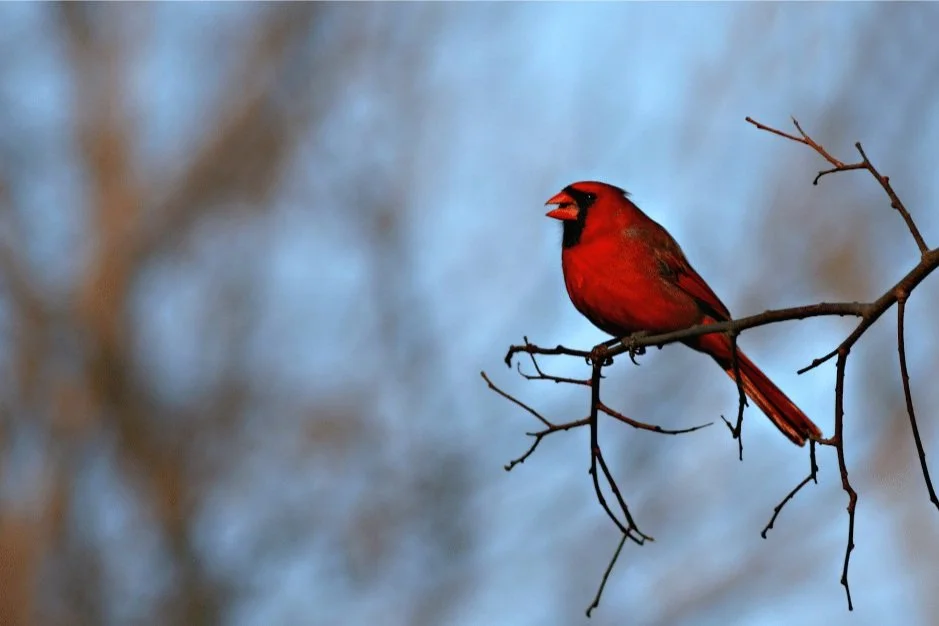Birds in the Airport
If you get a Spring Break, take a walk in the natural world with the eyes of a child.
Photo by me, at the airport, trying and failing to get a photo of the birds in the rafters.
Recently, we were in the airport en route for a weekend getaway. We made it through security. My travel anxiety subsided as I saw that my gate was indeed there, right where it should be. I did the things I do: trip to the restroom, trip to the refillable water station, driver’s license back in the wallet.
I opened my airport breakfast and sat down to half-relax, waiting to board.
The airport is a noisy place. Baseline chatter in several languages surrounded me. Every now and then an employee’s voice would blast us with announcements of boarding here, a lost iPad there, a please-meet-your-party elsewhere.
In the pauses of the noise, I noticed a soft chirping, more like a walk through the forest than a busy airport. I noticed a second chirping song behind and above me, so I looked up to the rafters.
Right at that moment, four small birds flew from the rafters down to the floor, making a circle above us before they landed by the window, picking somebody’s crumbs out of the carpet.
“Aves! ¡Mira los pájaros! Hay cuatro de ellos!” I heard over the baseline noise. I looked over to see two young girls, around age two and four, light-up shoes on their feet and pink earphones connected to their iPads.
“Birds! Look at the birds! Four of them!”
They laughed and squealed and pointed to the birds on the ground. They watched them and danced with them until the birds, satisfied with their crumb scavenging, took off for the raptors again. Once they disappeared, the girls settled down and returned their attention to the iPads.
I sat there in my seat wondering at the excitement of these young girls. Out of an entire airport of busy people, not one older person seemed to notice or care that there were birds trapped inside the airport terminal.
Not the adolescent male, wearing a hoodie and eating Whataburger as he organized several baseball caps in his backpack.
Not the father talking into his earphones as he mindlessly pushed his toddler in the stroller, no doubt hoping she would fall asleep.
Not the man in the purple LSU sweatshirt, talking on the phone. Or the teen girl eating takis. Or the lady on the phone asking who’s in charge of the catering and liquor order.
Not the multiple people lined up at the table, fingers tapping on laptops, which were attached to the cords, which were tethered to the table and to the ground. Not the two adolescents laughing about looking under the bathroom stalls until they found their mom’s feet.
Not the women behind me discussing funeral plans and a rosary. Not the four men laughing and talking in Italian. Not the three generations of women walking by, pushing the grandmother in a wheelchair.
Out of all of these people, only the two young children were able to hear the song of the birds.
How is it that we become callous to the earth’s wonders? What would it be like if we saw the world through the eyes of a child? What do we miss because we don’t pause to look or listen?
Much like these poor birds who, I personified, wished to break through the glass and fly into the sky, we can become trapped in the routines of our everyday lives. We can get so used to the nature and air and sounds around us that we miss the little miracles.
A wave crashing on the sand. An Aspen leaf fluttering in the wind. A rock that completely changes the flow pattern of a river. The sound of the wind in the trees. The song of a bird.
If you get a Spring Break this month, I would encourage you to slow down and see the world through the eyes of a child. If we stop and listen just beyond the baseline rumbling noises of our lives, there’s no telling what we will see or hear anew.
The advice and opinions herein are by no means meant to be a substitute for professional medical advice. Please contact your personal physician, mental health provider or health care professional for medical advice. Opinions are my own.


